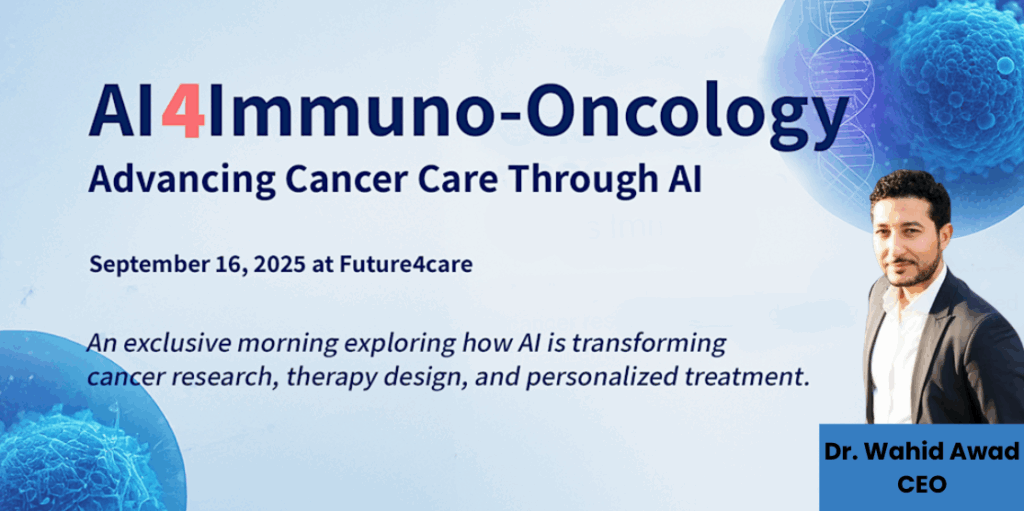AI-Enabled MultiOmics Cancer Precision Medicine Platform
Our Vision:
To redefine cancer care by making precision medicine accessible to every patient. Through the seamless integration of spatial omics, advanced proteomics mass spectrometry, gene expression analysis and advanced AI algorithms, Rosetta Omics envisions a future where each biopsy unlocks clear guidance for diagnosis, treatment selection, and therapeutic discovery, transforming outcomes and accelerating the path to cures.
Our Mission:
To empower oncologists, clinicians, and pathologists to deliver precision cancer care. From a single tissue slide per patient, our platform enables accurate diagnosis, patient stratification, and prioritization of first-line treatment options, guiding personalized therapy decisions with speed and confidence.
THE PROBLEM
Each year, more than 20 million people worldwide are diagnosed with cancer. Standard first-line therapies are not always effective, underscoring the urgent need for personalized medicine that can rapidly match patients with the most promising treatment. By improving the ability to predict treatment response, Rosetta Omics aims to increase cure rates, save lives, and reduce the burden of costly and inefficient therapies.
OUR SOLUTION
Rosetta Omics platform integrates seamlessly into standard clinical biopsy workflows, enhancing diagnostics and supporting informed decision-making. Beyond clinical applications, our solutions enable the identification of clinically relevant biomarkers and facilitate the discovery of novel therapeutic targets, bridging precision medicine with drug development.
Rosetta Spatial And Multiomics Platform
Our Platform includes the following technologies:
Mass Spectrometry Imaging
Mass spectrometry imaging (MSI), through matrix-assisted laser desorption ionization (MALDI-MSI), is a fast, label-free spatial omics approach that enables molecular pre-screening directly in tissue. By mapping the spatial distribution of lipids, metabolites, and proteins, it provides an integrative molecular snapshot that supports multi-omics discovery and context-aware interpretation of biological systems.
Laser Capture Microdissection
Laser microdissection (LMD) is a spatial omics technique that enables the targeted selection of specific tissue regions or cell populations. By isolating defined microscopic areas with high precision, LMD preserves spatial information while providing material for downstream molecular identification across lipids, metabolites, proteins, or nucleic acids.
Liquid Chromatography Tandem Mass Spectrometry
Liquid chromatography–tandem mass spectrometry (LC-MS/MS) is a high-resolution analytical platform that enables deep peptide and protein identification with label-free quantification. By combining chromatographic separation with sensitive mass spectrometric detection, LC-MS/MS provides robust molecular profiling that supports comprehensive proteomic analysis.
QPCR For Gene Expression
Tumor gene expression analysis using quantitative polymerase chain reaction (qPCR) provides a sensitive and robust approach for profiling transcriptional activity in cancer tissues. By quantifying gene expression and normalizing results against a reference bank of healthy tissues and cells, this method enables the identification of tumor-specific molecular signatures, supporting biomarker discovery, validation, and translational research.
MOLECULAR PROFILING
Our solution enables the exploitation of clinical samples in an optimal and specific way by identifying and quantifying several thousand proteins and analytes (metabolites, lipids, glycans) from a small amounts of biopsy-compatible material. Our multidimensional Multiomics data input from tumor and non-tumor tissue allow us to define the associated molecular pathophysiology of patient cancer.
AI-ENABLED Predictive Test
Rosetta Omics leverages advanced multiomics technologies—combining genomics and proteomics with AI-driven analytics—to deliver deeper molecular insights for precision medicine. By integrating genetic variations with dynamic protein expression, our platform predicts treatment response with greater accuracy, enabling clinicians to provide the right therapy to the right patient at the right time.
BIOMARKERS DISCOVERY
Thanks to our label free mass spectrometry approach, which stands out from the problems of antibody specificities, we can identify known and new biomarkers of clinical interest allowing faster diagnostic validation, new therapeutic strategies/combinations and better tumor classification for biopharmaceutical companies.
Current Patient Journey

Patient Journey With Rosetta Omics

UPCOMING EVENTS

